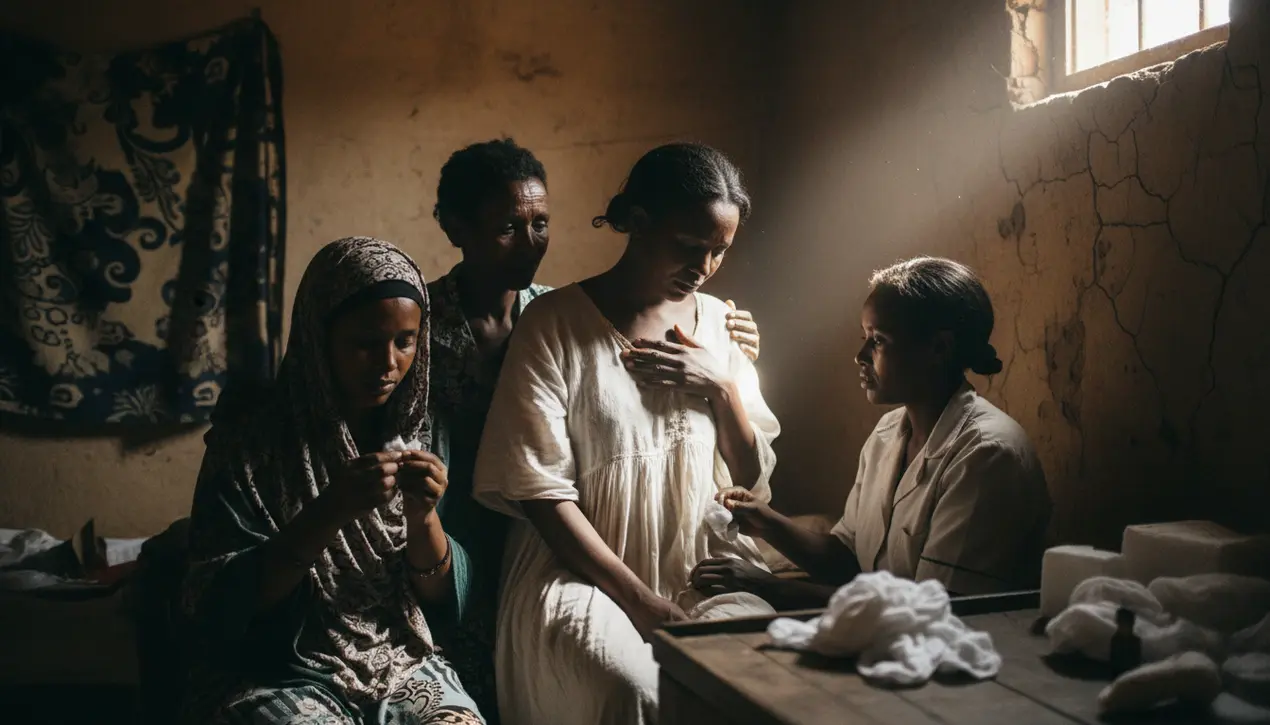
Politicsconflict & defenseWar Reports and Casualties
Forgotten Ethiopian war destroys women's lives.
AN
Anna Wright
2 hours ago7 min read2 comments
A silent, brutal war is systematically dismantling the lives of thousands of women in Ethiopia’s Amhara region, a conflict largely forgotten by the international gaze yet defined by a weapon as old as war itself: sexual violence. A recent investigation by BBC Global Women has pierced this veil of silence, documenting a harrowing epidemic of rape used not as a mere byproduct of fighting, but as a calculated instrument of terror and subjugation.This is not an isolated tragedy but a grim chapter in a longer, complex struggle for control, where the bodies of women become the battleground. The conflict in Amhara, which escalated following the ceasefire in the neighboring Tigray war, pits Ethiopian federal forces and their allies against Fano militiamen, local ethnic militias demanding greater autonomy and protesting what they see as federal overreach.In this volatile landscape, women are caught in a perfect storm of political machismo and historical grievance, their safety sacrificed for territorial ambitions. The testimonies emerging are a gut-wrenching catalogue of trauma—survivors speak of assaults by multiple armed actors, often in their own homes, in front of their children, a deliberate tactic to shatter community bonds and instill paralyzing fear.The long-term consequences are a cascading humanitarian crisis; beyond the immediate physical injuries and psychological scars, survivors face profound social stigmatization, abandonment by husbands, and unwanted pregnancies in a society where honor is inextricably linked to female purity. The healthcare infrastructure, already decimated by years of conflict and the COVID-19 pandemic, is woefully unequipped to handle the surge in demand for post-rape care, including emergency contraception and treatments to prevent HIV and other sexually transmitted infections.This systemic failure is compounded by a near-total collapse of the justice system; reporting these crimes is often futile, with survivors facing intimidation and a pervasive culture of impunity that protects the perpetrators, many of whom wear official uniforms. The situation echoes the darkest patterns observed in other conflict zones from the Democratic Republic of Congo to Bosnia, where rape was weaponized as a tool of ethnic cleansing, yet the global response to Ethiopia's crisis has been muted, lost in the noise of other international crises.Feminist analysts and human rights organizations argue that this international apathy is itself a form of complicity, reflecting a persistent failure to prioritize crimes predominantly affecting women as serious violations of international humanitarian law. The personal impact is a lifetime sentence of pain; one survivor, whose name was changed to ‘Lemlem’ for her protection, recounted to investigators how the assault destroyed her small business, as the shame prevented her from returning to the local market, plunging her family deeper into poverty.This economic devastation, layered upon the psychological and physical trauma, creates a cycle of deprivation that can last for generations. Until the international community, from the United Nations Security Council to regional bodies like the African Union, moves beyond statements of concern to enact concrete measures—such as targeted sanctions against commanders known to tolerate such atrocities, robust funding for local women-led support organizations, and demanding unfettered access for independent investigators—this hidden war will continue to destroy lives, one woman at a time, leaving scars that will define Ethiopia’s social fabric long after the guns fall silent.
#featured
#Ethiopia
#Amhara conflict
#sexual violence
#human rights
#war crimes
#BBC investigation
#women
#rape
#forgotten war
Stay Informed. Act Smarter.
Get weekly highlights, major headlines, and expert insights — then put your knowledge to work in our live prediction markets.
Comments
Loading comments...
© 2025 Outpoll Service LTD. All rights reserved.